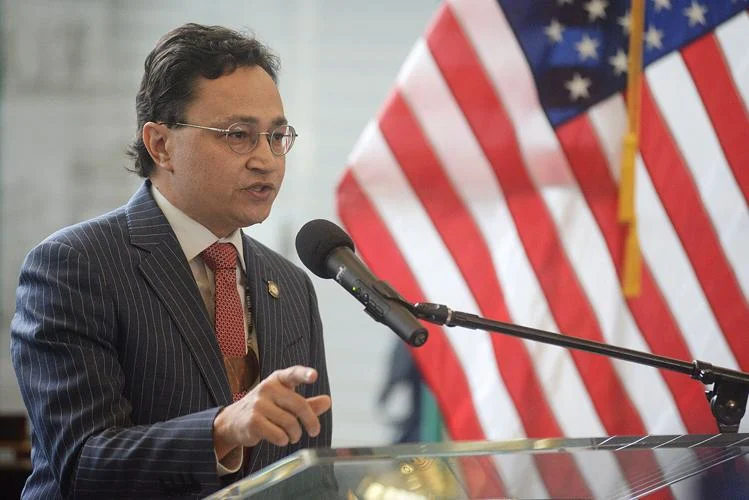
- Details
- By Native News Online Staff
A looming government shutdown on March 2, 2024 could have devastating impacts on tribal communities throughout the United States, Cherokee Nation Principal Chief Chuck Hoskin, Jr. wrote in a Feb. 14 letter addressed to Speaker of the House Mike Johnson (R-Louisiana).
Hoskin, who leads the most populated tribal nation in the country, urged Congress to consider the ways in which a government shutdown would impact essential services for millions of Native Americans, including limited access to health care, public safety, and education programs that rely on federal funding.
“These services are not luxuries but lifelines that maintain the health, culture, and safety of our people,” Hoskin wrote.
As of Feb. 24, Congressional leaders have still not reached a deal to keep federal funding going past Friday at midnight, which is the deadline to avoid a partial government shutdown.
Specifically, if the federal government shuts down, Hoskin said that over 140,000 Cherokee Nation citizens will not have groceries, almost 13,000 citizens may lose access to diabetes medicines and cancer treatments, and could result in the release of 85,000 criminals before their sentences are served due to canceled detention agreements.
“The potential for a shutdown is also creating a growing atmosphere of uncertainty that undermines our economic development work,” Hoskin wrote. “When federal funding is uncertain, so too are the jobs and programs that support tribal economies. I implore you, as Speaker of the House, to consider the broader implications of a government shutdown on Indian Country.”
President Joe Biden has invited House Speaker Johnson, Senate Majority Leader Charles E. Schumer (D-NY), Senate Minority Leader Mitch McConnell (R-KY) and House Minority Leader Hakeem Jeffries (D-NY) to the White House for a meeting Tuesday to discuss the shutdown deadlines.
More Stories Like This
Native News Weekly (August 25, 2024): D.C. BriefsNavajo Nation Mourns the Passing of Former Vice President Rex Lee Jim
Deb Haaland Earns Endorsement From Communications Workers of America Local 7076
University Soccer Standout Leads by Example
Two Native Americans Named to Democratic Congressional Campaign Committee's“Red to Blue” Program
Help us defend tribal sovereignty.
At Native News Online, our mission is rooted in telling the stories that strengthen sovereignty and uplift Indigenous voices — not just at year’s end, but every single day.
Because of your generosity last year, we were able to keep our reporters on the ground in tribal communities, at national gatherings and in the halls of Congress — covering the issues that matter most to Indian Country: sovereignty, culture, education, health and economic opportunity.
That support sustained us through a tough year in 2025. Now, as we look to the year ahead, we need your help right now to ensure warrior journalism remains strong — reporting that defends tribal sovereignty, amplifies Native truth, and holds power accountable.
 The stakes couldn't be higher. Your support keeps Native voices heard, Native stories told and Native sovereignty defended.
The stakes couldn't be higher. Your support keeps Native voices heard, Native stories told and Native sovereignty defended.
Stand with Warrior Journalism today.
Levi Rickert (Potawatomi), Editor & Publisher

